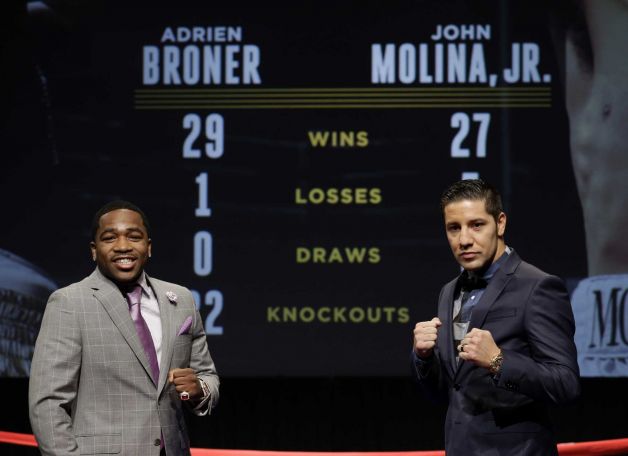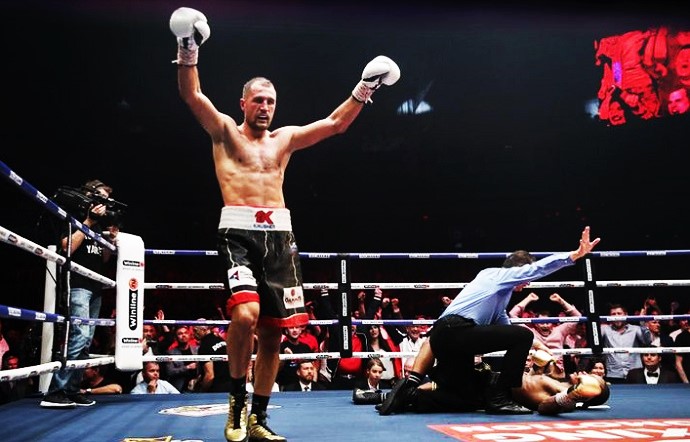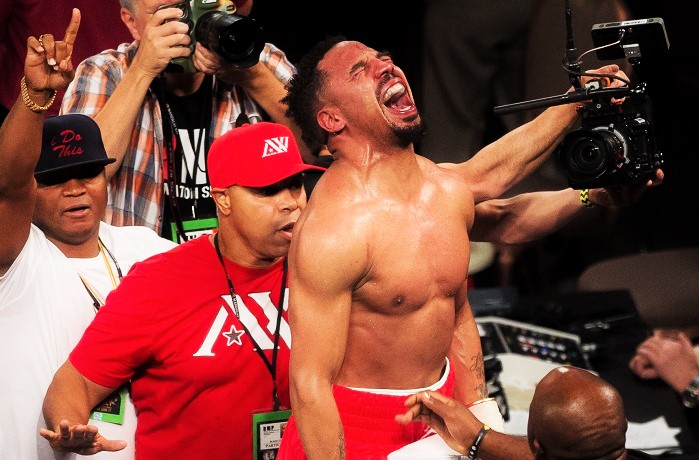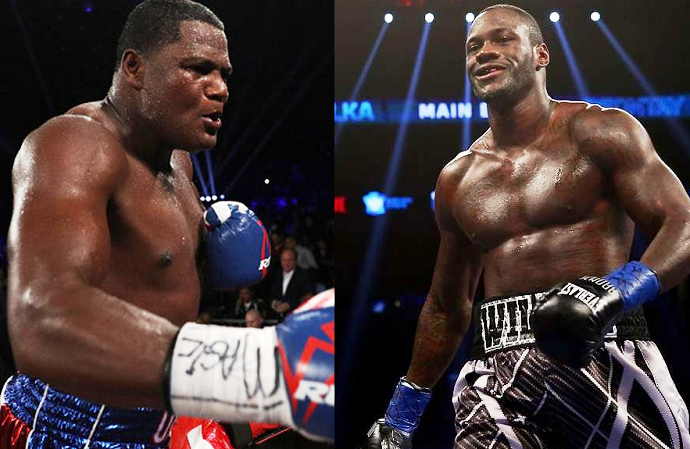Bosses Don’t Take Losses
“Bosses talk to bosses.” This is what Adrien Broner declared during his car ride interview with TMZ’s cackling jackals in January. The fighter had been asked about the five year, $40 million offer Roc Nation tendered him, a pitch he turned down. The sum was, by his estimation, paltry in light of his otherworldly talents, but Broner was further aggrieved the communiqué hadn’t been sent by Jay-Z himself, but rather one of his underlings. Given AB’s global star power and undeniable likeability, why hadn’t Hova himself descended from the Manhattan clouds to give him exactly what he wanted?
Aside from Jay-Z’s everyday concerns at Roc Nation, which likely keep him from meeting every person the company does business with, the rapper didn’t give Broner more money because there’s a vast difference between the boxer’s actual value and what he perceives it to be. That is why Broner (29-1) fights John Molina (25-5) this week on NBC, a network that gifted us Seinfeld but burdened the world with Jay Leno. It is big time boxing’s return to cable television, which in the short term is good for the sport, even if, by virtue of the fact it’s free, Broner ’s ego might bruise through his association with it. Bosses, of whom Floyd Mayweather is really the only one among boxers, fight exclusively on pay-per-view.
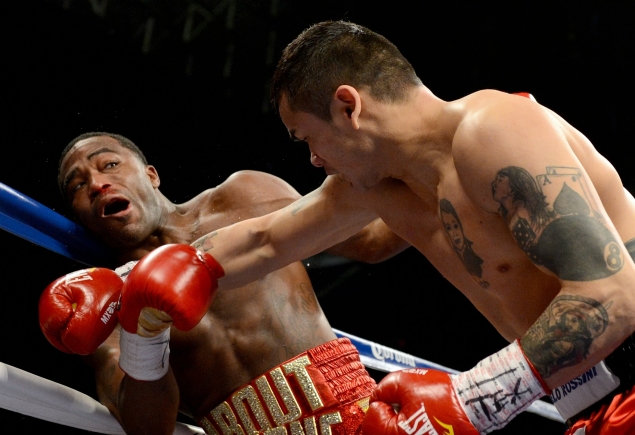
Broner says he’s thankful for this opportunity, and he should be. Fighting on NBC means he’ll be seen by more people than during any fight in his career, which went from promising, with his blown up dominance at lightweight, to sobering, with his decisive loss to Marcos Maidana. HBO wanted badly for Broner to be a star; in “The Problem” they saw the right elements for mainstream success, with his mimicry of Floyd’s personality and crude imitation of his fighting style. Unfortunately, ability gets laid bare in the ring, and Broner could only exploit day-before weigh-ins and beat up undersized opponents for so long before his ego was matched with a talent of equal size. That came in Maidana, who showed that Broner is a fighter penetrable by pressure and physicality.
In Molina, he will receive a second, albeit less frightening, dose of these same troubling ingredients. The Californian is a heavy-handed fighter with significant height and power advantages. He doesn’t have Broner’s hand speed or snappy combination punching, and will use pressure to get inside. If Molina’s successful, this will trouble “The Problem.” When Broner can’t stand in the center of the ring and fight at the rate he likes, remaining stationary as he waits for his opponent to open up, he gets flummoxed. The Cincinnatian might have good footwork, we’ve just never seen him use it, and nothing in his past suggests he can nimbly step away from an attack. He also has difficulty when forced to move backwards because it neutralizes his offense.
Tellingly, Broner showed no evidence of improvement in his last two fights. Carlos Molina and Emmanuelle Taylor were smaller opponents whose styles were germane to his, and because they couldn’t force their way forward, Broner easily dictated the exchanges. Both times he reverted to his old ways, inexplicably ceding control of rounds and fighting lazily, and won rather unimpressive decisions.
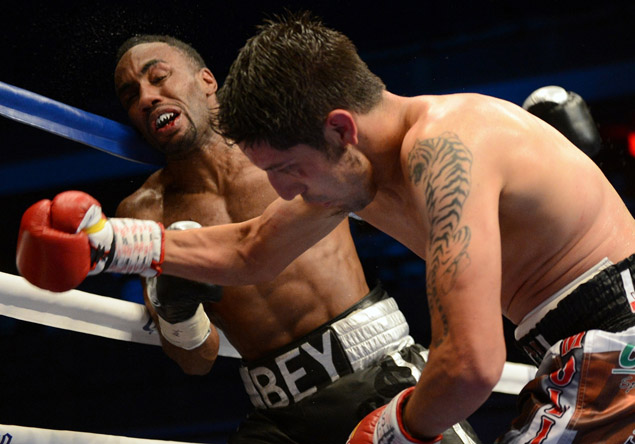
Al Haymon, who oversees Broner’s career, is presumably still intent on making him a star, which is why he’s featured in Saturday’s co-main. Matchmakers have put him in with someone he can either look spectacular or vulnerable against. Their decision to have Broner fight Molina must be traceable to the belief that Molina is shot, having lost consecutive, brutal fights to Lucas Matthysse and Humberto Soto. That is a considerable gamble. If Molina displays the same form he did against Matthysse, Broner will have all he can handle. This makes him an interesting opponent, one matchmakers hope is cannon fodder, but who just might have enough gunpowder left to blast back.
Will Molina be at all dissuaded from moving forward? Despite the string of knockouts he racked up at lightweight, Broner is not a powerful welterweight. He’s a sharp puncher, about which there can be no doubt, and Molina was shockingly stopped when a precise right from Broner-victim Antonio DeMarco finished him within thirty seconds of the first round, but “The Problem” can’t count on landing a miracle shot. He is not going to simply outbox Molina; he is not a requisitely complete fighter to do so, and Molina just won’t let him. Rather, Broner will have to rely on hand speed and accuracy, and quickly acclimatize himself to his opponent’s physicality. He also can’t leave himself susceptible to one of Molina’s power shots. The Californian is a formidable puncher and floored Matthysse twice in a fight he eventually lost by eleventh round KO.
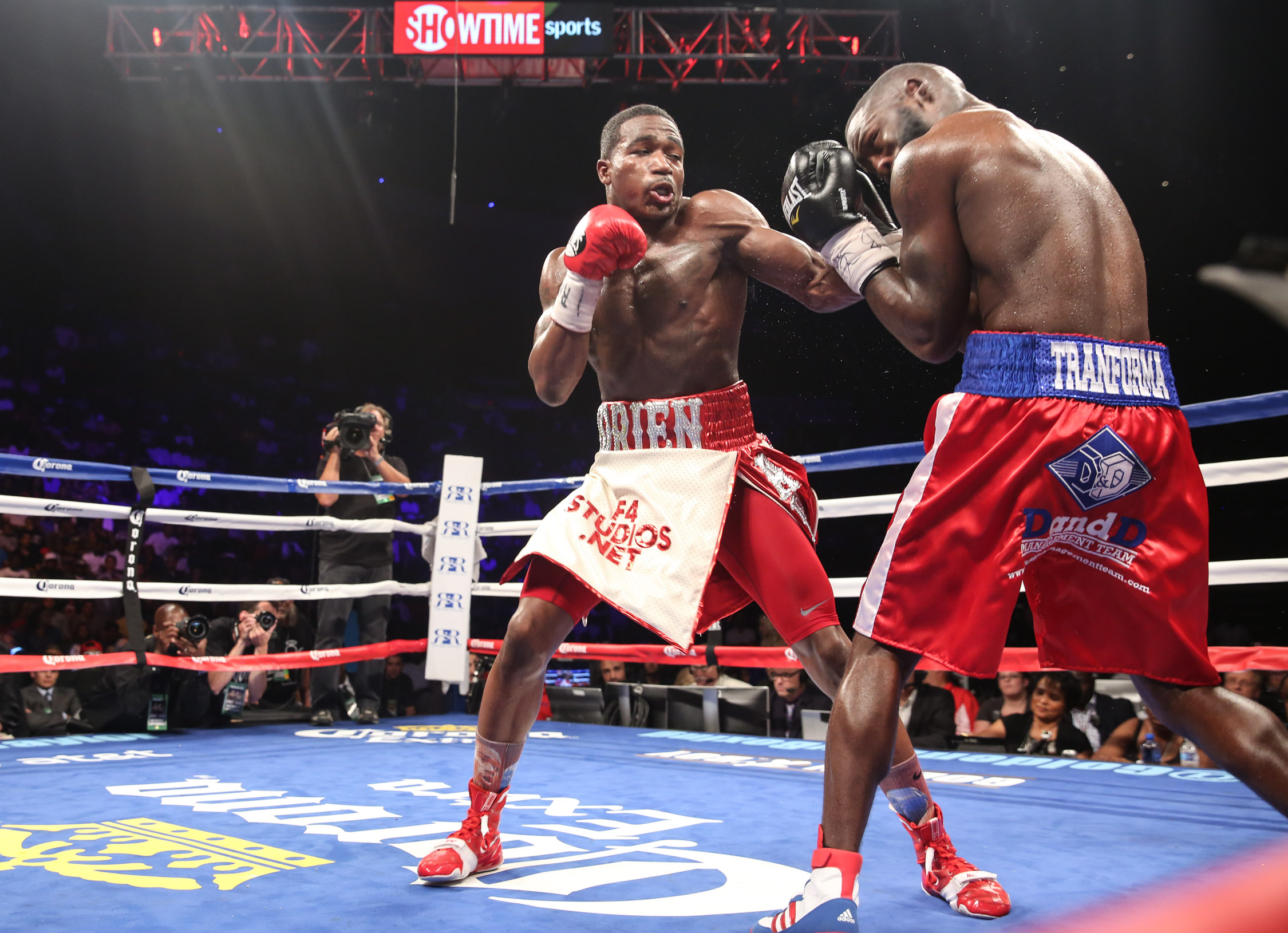
Broner vs Molina should be a highly entertaining scrap. Though “The Problem” fought with much reserve in his last two bouts, he is exceedingly fun to watch when he lets his hands go. Molina, meanwhile, can lose nine-and-a-half rounds of a ten round fight and still win, as he did in his unforgettable brawl with Mickey Bey. If he doesn’t show up like Mike Alvarado recently did against Brandon Rios, impotent and incapable, and shows his old, obstinate form, this should be a firefight.
For Al Haymon, this bout will ideally result in Broner earning an emphatic stoppage through some flashy combination punching. Boxing’s once ‘Next One’ has promised less problematic behaviour, and while more refinement would be nice, even if it’s contrived, it’s his technical improvement, not his moral amelioration, that we’re interested in. John Molina fights like a scofflaw but has enough power to be an executioner. A loss to him Saturday won’t be a death sentence, but it will push Broner closer to the precipice of irrelevance. For “The Problem”, that might be a fate worse than death.
— Eliott McCormick

